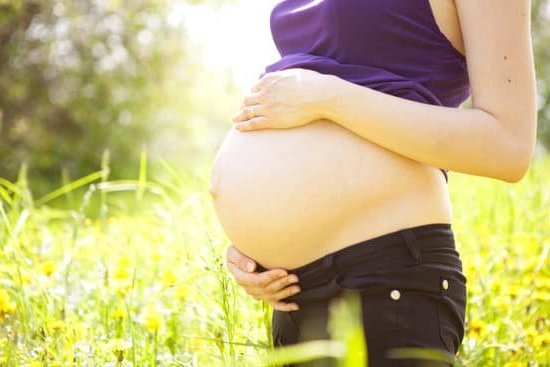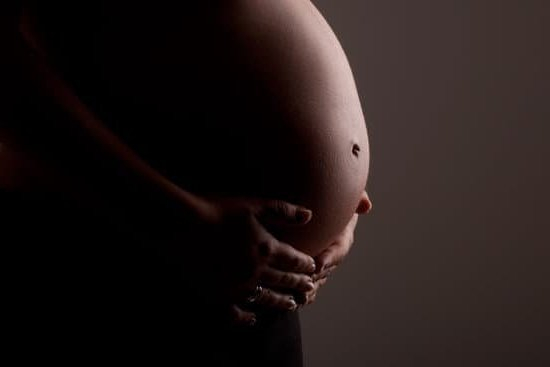Are you trying to conceive or concerned about a possible pregnancy? Understanding ovulation and the right timing for taking a pregnancy test can be crucial. This article will provide information on when you can take a pregnancy test after ovulation, as well as essential details about ovulation, pregnancy testing, and early signs of pregnancy.
Ovulation is a key part of the menstrual cycle for those trying to get pregnant. It is the process in which an egg is released from the ovaries, making it available for fertilization by sperm. Understanding when this occurs can help individuals determine the best time to take a pregnancy test and maximize their chances of accurate results.
In addition to discussing when it’s appropriate to take a pregnancy test after ovulation, we’ll delve into various methods for tracking ovulation, such as using predictor kits or monitoring basal body temperature. We’ll also explore how pregnancy tests work, including the science behind them and common early symptoms of pregnancy that may indicate the need for testing.
Ovulation Tracking
Taking a pregnancy test after ovulation can be an exciting and anxiety-inducing time for many women who are trying to conceive. Ovulation is the process of releasing an egg from the ovary, which typically occurs around day 14 of a 28-day menstrual cycle. However, every woman’s cycle is different, so tracking ovulation is crucial for determining the best time to take a pregnancy test.
There are several methods for tracking ovulation, including using ovulation predictor kits and monitoring basal body temperature. Ovulation predictor kits work by detecting the surge in luteinizing hormone (LH) that occurs before ovulation. By identifying this hormone surge, these kits can help predict when ovulation is about to occur.
On the other hand, monitoring basal body temperature involves taking your temperature every morning before getting out of bed and charting the results. A slight increase in basal body temperature indicates that ovulation has occurred.
Once ovulation has been identified, it’s important to wait for at least 12-14 days before taking a pregnancy test. This waiting period allows enough time for the fertilized egg to implant in the uterus and for hCG levels to rise high enough to be detected by a home pregnancy test. Taking a test too early can result in a false negative result, leading to potential disappointment.
According to healthcare professionals, it is best to wait until at least 12 days after ovulation before taking a pregnancy test. However, waiting until closer to when your next period is due can provide more accurate results.
It’s also important to keep in mind that individual hCG levels can vary, so if you receive a negative result but still suspect you may be pregnant, it’s recommended to try testing again in a couple of days or consult with a healthcare provider for further guidance.
| Ovulation Tracking Method | Accuracy |
|---|---|
| Ovulation Predictor Kits | High accuracy in predicting ovulation |
| Basal Body Temperature Monitoring | Slight variability based on individual cycles |
When Can You Take a Pregnancy Test
After ovulation, many women eagerly anticipate the opportunity to take a pregnancy test. The big question on their minds is usually, “How many days after ovulation can you take a pregnancy test?” Understanding the timing and accuracy of pregnancy tests is crucial for obtaining reliable results.
Timing of Pregnancy Test
The timing of when to take a pregnancy test after ovulation is essential for accuracy. Most home pregnancy tests claim to provide accurate results as early as the first day of a missed period. However, for those tracking ovulation and trying to conceive, it may be tempting to test sooner. It is important to note that testing too early may yield a false negative result, leading to disappointment and frustration.
Earliest Possible Days
In general, it is recommended to wait at least 10-14 days after ovulation before taking a pregnancy test for the most accurate results. This waiting period allows the developing embryo enough time to produce a sufficient amount of hCG (human chorionic gonadotropin) – the hormone detected by pregnancy tests. Testing too early may result in levels of hCG that are too low to register on the test, leading to a false negative result.
Factors Affecting Accuracy
Several factors can influence the accuracy of a pregnancy test after ovulation. These include irregular menstrual cycles, variations in hCG levels among individuals, and potential errors made while tracking ovulation. Additionally, certain medications and underlying medical conditions can also impact the reliability of pregnancy test results. Therefore, understanding how these factors can affect accuracy is important in determining the right time to take a pregnancy test after ovulation.
How Pregnancy Tests Work
Pregnancy tests work by detecting the presence of the hormone human chorionic gonadotropin (hCG) in a woman’s urine. This hormone is produced by the cells that form the placenta shortly after a fertilized egg attaches to the uterine lining. Understanding how pregnancy tests work can help individuals comprehend when they should take a test and how accurate the results may be.
How Pregnancy Tests Work
- When a woman becomes pregnant, hCG starts to appear in her urine approximately 6-12 days after ovulation.
- Pregnancy tests work by testing for the presence of hCG in a woman’s urine sample. The test strip contains antibodies that react with this hormone if it is present, producing a positive result.
- Some pregnancy tests use digital technology to clearly display “pregnant” or “not pregnant” on a screen, while traditional tests show lines or symbols indicating either positive or negative results.
It is important for individuals to understand that taking a pregnancy test too early after ovulation can lead to inaccurate results. For the most reliable outcome, it is best to wait until at least one week after a missed period before taking a pregnancy test. However, some highly sensitive pregnancy tests may detect hCG levels earlier than others. It’s also crucial to carefully follow the instructions provided with the test for accurate results.
Early Pregnancy Symptoms
Fatigue is another common early pregnancy symptom that many women experience. This overwhelming feeling of tiredness can be attributed to the hormonal changes taking place in the body as it adjusts to supporting a growing fetus. It’s not uncommon for women to feel exhausted even with an adequate amount of sleep.
Breast tenderness is also a classic sign of early pregnancy. Many women notice that their breasts feel swollen, sensitive, or even slightly painful to the touch. This is caused by an increase in hormone levels that prepare the body for breastfeeding.
| Early Pregnancy Symptom | Description |
|---|---|
| Nausea | A feeling of queasiness that may be accompanied by vomiting |
| Fatigue | An overwhelming feeling of tiredness despite adequate sleep |
| Breast Tenderness | Swollen, sensitive, or painful breasts due to hormonal changes |
These symptoms can start as early as one week after conception and usually become more noticeable around four to six weeks gestation. However, it’s important to note that these symptoms may also be attributed to other factors such as stress or hormonal fluctuations unrelated to pregnancy. If you suspect you may be pregnant based on these symptoms and your timing matches up with when you could have conceived, it’s recommended to take a pregnancy test for confirmation.
False Negative Results
When it comes to taking a pregnancy test after ovulation, there is always the potential for receiving a false negative result. This can be disheartening for those hoping to conceive, but it’s important to understand the factors that may affect the accuracy of the test. False negative results occur when a woman is actually pregnant, but the test incorrectly indicates that she is not.
Factors Affecting Test Accuracy
Several factors can contribute to a false negative pregnancy test result. One common factor is testing too early after ovulation. Pregnancy tests measure the level of hCG in urine, and it takes time for this hormone to build up to detectable levels. Additionally, using a dilute urine sample or not following the instructions properly can also impact the accuracy of the test. Certain medications and medical conditions can interfere with hCG production, leading to misleading results as well.
When to Retest
If you receive a negative result but suspect that you may be pregnant based on your symptoms and timing of intercourse, it’s important to wait a few days before retesting. Waiting at least one week after a missed period or at least 16-18 days after ovulation can increase the likelihood of an accurate result. If you are still uncertain about your results, consulting with a healthcare professional is advised.
Managing Expectations
Understanding the possibility of false negative pregnancy test results can help manage expectations during the early stages of trying to conceive. It’s important not to get discouraged if you receive a negative result, especially if you have been tracking your cycle and have reason to believe you may be pregnant. By waiting until the appropriate time and following best practices for taking a pregnancy test, individuals can improve their chances of an accurate result.
Importance of Timing
Understanding the importance of timing when taking a pregnancy test is crucial for accurate results. After ovulation, it takes time for the fertilized egg to implant in the uterus and for the body to start producing hCG, the pregnancy hormone detected by tests. Here is a breakdown of when you can take a pregnancy test after ovulation:
- 6 to 9 days past ovulation: At this early stage, it may be too soon for a pregnancy test to detect hCG levels. However, some early pregnancy tests claim to provide accurate results at this time. It’s important to note that taking a test this early may result in a false negative due to low hCG levels.
- 10 days past ovulation: This is typically the earliest recommended time to take a pregnancy test. Many home pregnancy tests are designed to be most effective at detecting hCG levels around this time.
- 14+ days post-ovulation: Waiting until at least two weeks after ovulation can increase the accuracy of the test, reducing the likelihood of receiving a false negative result.
Understanding when to take a pregnancy test after ovulation can help avoid potential disappointment from inaccurate results. Waiting for the optimal time increases the likelihood of obtaining an accurate result and provides clarity during an emotionally charged time. If unsure about when to take a pregnancy test, consult with a healthcare professional for personalized guidance and support.
Consulting a Healthcare Professional
In conclusion, determining the right time to take a pregnancy test after ovulation is crucial in obtaining accurate results. While it can be tempting to take a test as soon as possible, it’s important to understand the timing and factors that can affect its accuracy.
Understanding the process of ovulation and tracking it using various methods can help individuals pinpoint the best window for testing. Additionally, recognizing early pregnancy symptoms and being aware of the potential for false negative results can also aid in making an informed decision about when to take a pregnancy test.
It’s essential to remember that consulting a healthcare professional is always beneficial when it comes to matters of pregnancy testing. Healthcare providers can offer personalized advice based on an individual’s specific circumstances, as well as administer accurate tests in their office if necessary. Seeking guidance from a healthcare provider can also provide emotional support and reassurance during what can be an emotional and uncertain time.
In summary, while it may be challenging to wait, understanding the importance of timing when taking a pregnancy test after ovulation is key to obtaining reliable results. By staying informed about ovulation tracking methods, understanding how pregnancy tests work, recognizing early symptoms of pregnancy, and seeking guidance from a healthcare professional, individuals can navigate the process with confidence and peace of mind.
Frequently Asked Questions
How Soon After Ovulation Is Pregnancy Test Positive?
A pregnancy test can typically detect hCG in urine about 10-14 days after ovulation. This means the soonest most women can expect a positive result is around 10 days post ovulation, though some may need to wait longer.
How Soon Will a Pregnancy Test Read Positive?
Most pregnancy tests claim to be able to detect pregnancy as early as the first day of a missed period. However, some highly sensitive tests may be able to accurately detect the hormone hCG in urine as early as 6-8 days post ovulation.
What Is the Average DPO for a Positive Pregnancy Test?
The average DPO (days past ovulation) for a positive pregnancy test is around 13-14 days. However, this can vary widely from woman to woman. Factors such as the sensitivity of the test and individual differences in hCG production can influence when a positive result will occur.

Welcome to my fertility blog. This is a space where I will be sharing my experiences as I navigate through the world of fertility treatments, as well as provide information and resources about fertility and pregnancy.





